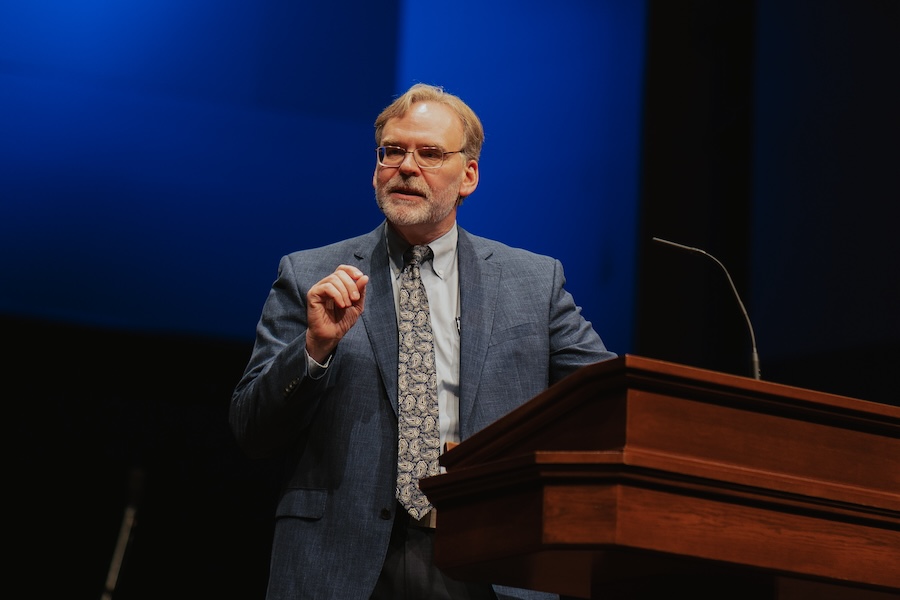FROM THE PROFS: ‘Greatest evangelism failure’ teaches lesson about compassion

Southwestern professor Katie McCoy’s passion for sharing the Gospel has long been evident. But reflecting on lessons learned from what she describes to be her “greatest evangelism failure,” McCoy says her evangelism must also represent the love, grace and mercy that she is trying to convey.
Serving as a summer volunteer at a local pregnancy center during her second year as a student at Southwestern, McCoy met a young woman who came in for a pregnancy test. As with many clients, they discussed various items regarding her physical, emotional and spiritual wellbeing.
The woman shared about her own religious experience, but as she did so, McCoy says she had the woman “spiritually diagnosed” and needed to convince her that she was lost. The woman claimed to be a Christian based on her moral goodness and religious upbringing, but McCoy says a personal relationship with Christ was clearly missing.
“From everything that she shared about her spiritual life, I thought I had her figured out,” McCoy says. “‘Another church girl who has never really had a conversion,’ I reasoned.”
But as McCoy shared, the woman became emotional and wanted to stop talking. McCoy says that in that moment, she viewed the woman as a case and an issue for her to solve. Her approach, she explains, did not reflect the love she should have extended to a woman in need. “I certainly didn’t reflect the kindness of the Lord that draws us to repentance,” she says.
“I gave her little reason to want to know this King of Love whom I claimed to represent,” McCoy continues. “Instead of speaking like a minister of reconciliation and allowing the Holy Spirit to work through His word, I sounded more like a prosecutor.”
McCoy had a zeal for evangelism but lacked compassion. She presented the truth but lacked grace.
Although an unsuccessful evangelism encounter, McCoy says this conversation changed her approach to evangelism. Whether in the tone of her voice or her choice of words, she says she must remember that she is not speaking to a case, but a soul that needs to hear of Christ’s forgiveness and redemption.
“Some of Jesus’ most confrontational words were to those who handled the things of God in a spirit of judgment, those who were religiously elite but completely missed the point of loving God and loving others,” McCoy says. “If I speak with the most theologically right, doctrinally pure Gospel presentation—but have not love—what good are my graceless words?”



